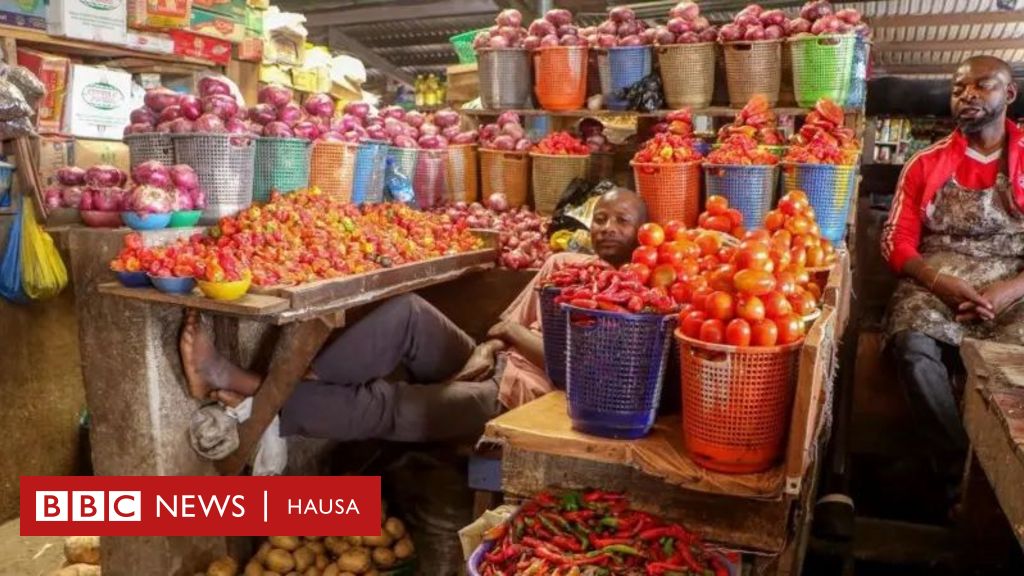Nigeria's Economy: Is the World Bank's Stagnation Report a Reality or a Misleading Narrative?

Recent reports from the World Bank have sparked intense debate regarding the state of Nigeria's economy. The bank's assertion that Nigeria's economic growth is stagnating has been met with skepticism and accusations of a misleading narrative by some Nigerians. This article delves into the complexities surrounding these claims, examining the data, exploring alternative perspectives, and analyzing the potential implications for the country's future.
Understanding the World Bank's Report
The World Bank's report highlights a concerning trend: a slowdown in Nigeria's economic growth. While acknowledging challenges such as inflation, rising debt levels, and security concerns, the report suggests that the country is struggling to achieve sustainable and inclusive growth. Specifically, the report points to a lack of diversification in the economy, with a heavy reliance on oil exports, making it vulnerable to fluctuations in global oil prices. Furthermore, the report cites infrastructural deficits, regulatory hurdles, and a challenging business environment as contributing factors to the economic slowdown.
The Counter-Argument: Is it a Fair Assessment?
However, not everyone agrees with the World Bank's assessment. Critics argue that the report fails to adequately capture the nuances of Nigeria's economic reality. They point to pockets of growth in sectors such as technology, agriculture, and entertainment, which are not fully reflected in the broader macroeconomic data. Many economists believe that Nigeria's economy is undergoing a gradual transformation, with a shift towards a more diversified and resilient model. Additionally, government initiatives aimed at improving the business climate and attracting foreign investment are beginning to yield positive results, albeit slowly.
Factors Contributing to Economic Stagnation
Despite the counter-arguments, it is undeniable that Nigeria faces significant economic challenges. Several factors are contributing to the perceived stagnation:
- Oil Price Volatility: Nigeria's economy remains heavily dependent on oil revenue, making it susceptible to global oil price fluctuations.
- Inflation: High inflation rates erode purchasing power and discourage investment.
- Security Concerns: Insecurity, particularly in the northern and southern regions, disrupts economic activity and deters investment.
- Infrastructure Deficits: Poor infrastructure, including inadequate power supply and transportation networks, hinders economic growth.
- Regulatory Challenges: Complex and often inconsistent regulations create barriers to entry for businesses and discourage investment.
The Path Forward: Policy Recommendations
To address these challenges and revitalize Nigeria's economy, policymakers need to prioritize the following:
- Economic Diversification: Reduce reliance on oil by promoting growth in other sectors.
- Investment in Infrastructure: Improve power supply, transportation networks, and other essential infrastructure.
- Regulatory Reforms: Simplify regulations and create a more business-friendly environment.
- Security Enhancement: Improve security across the country to create a stable environment for economic activity.
- Fiscal Responsibility: Manage debt levels and ensure prudent fiscal policies.
Conclusion
The debate surrounding Nigeria's economic stagnation is complex and multifaceted. While the World Bank's report raises valid concerns, it is important to consider alternative perspectives and acknowledge the pockets of growth that are emerging. Addressing the underlying challenges through strategic policy reforms is crucial for unlocking Nigeria's economic potential and ensuring a prosperous future for its citizens. The key lies in a balanced approach – acknowledging the issues while simultaneously fostering an environment conducive to sustainable and inclusive growth.





